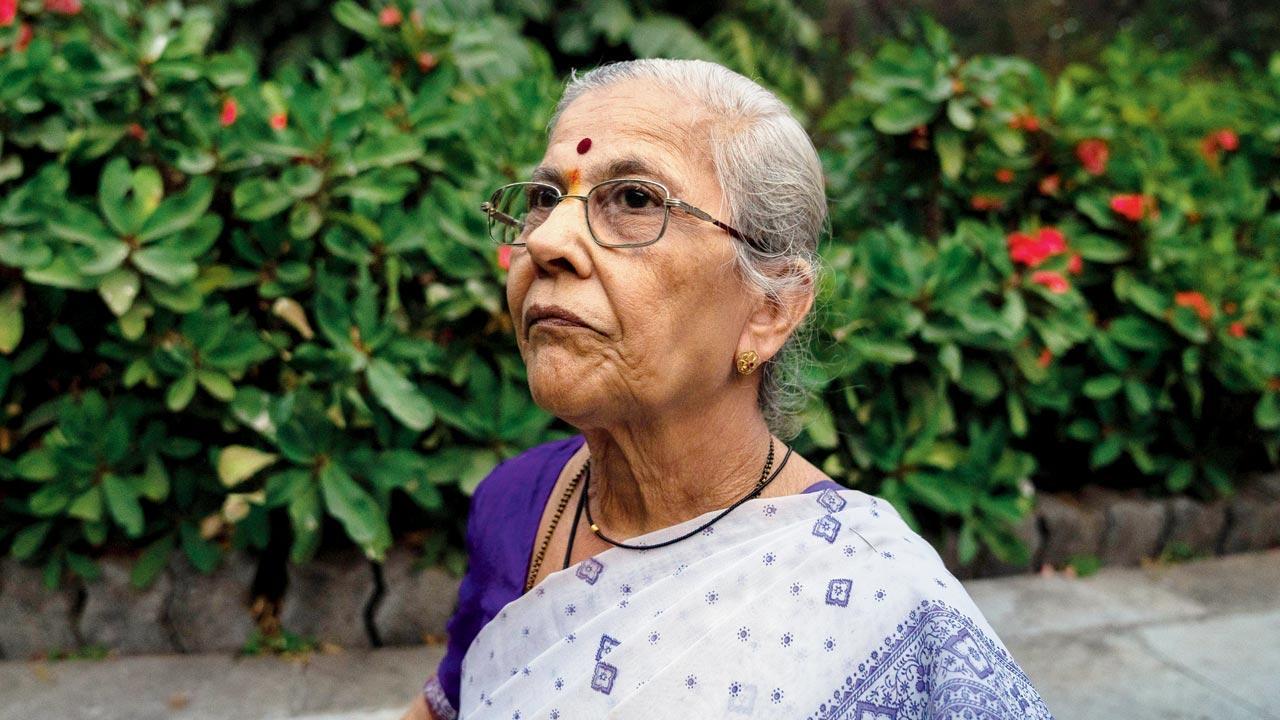Not only is a septuagenarian inspiring women to partake in last rites, she is helming them as one of the state’s earliest priestesses. A filmmaking grad finds her journey poignant enough to dedicate a docu to her

Chitra Chandrachud says that by taking on this role, she is hoping to break stereotypes
Before I got married into a family from Pune, my father passed away. Aai [mother] had fainted, and so I had to sit by baba’s [father] bed all night. I remember not being scared at all. The bond and love between us was so strong, I knew I had to stay with him,” recollects Chitra Chandrachud. It’s her father’s death and his funeral that she says changed her life forever.
ADVERTISEMENT
Now 74, Chandrachud thinks every girl has the right to say goodbye to those she loves. “And by that I mean, that she be allowed to go to the crematorium and conduct the last rites if she wishes to,” Chandrachud clarifies.
In 1997, when she turned 52, Chandrachud decided to chart a path that challenged patriarchy. She says she could well be the first priestess in Maharashtra who conducted traditional ceremonies, pujas, weddings and funerals. To celebrate her life’s work, a documentary is doing the rounds on YouTube. Simply titled Chitra, it’s a film by Harsh Matondkar, a Mumbai-based filmmaking graduate. He chose to make Chandrachud the subject of his post-graduation project. Searching for an answer to why exactly women were kept away from last rites, his research led him to “Chitra aaji”, and he began shooting in January last year.
Chandrachud has been conducting funeral rites for the last 22 years across India. Pic/Ali Monis Naqvi
Chandrachud grew up in a traditional Brahmin household, where bhajans and kirtans were an everyday affair. Her father organised an annual 10-day festival following Janmashtami, celebrating the birth of Lord Krishna at their Solapur home. “Kathas, discourses and pujas were incomplete without the presence of all family members. Even as a child, I found comfort in these rituals,” Chandrachud tells mid-day.
Alao Read: The sound of music
Years later, when as a young woman, she read Gargi Ajun Jeevant Ahe (Gargi is still alive), in which the female protagonist performs the last rites in Benaras, Chandrachud wondered why it was assumed that women would be incapable of living with the loss of a loved one, and able to give them a warm send off. “There is a wall built that differentiates certain ceremonies as ashubh and shubh. During Pitru Paksha [16-day lunar period in the Hindu calendar], Hindus pay homage to their deceased ancestors, through food offerings. Don’t we pay the same tribute to our respective Gods? Why then, do we consider funerals to be inauspicious? Why are only men allowed to bid adieu to their folks? Don’t women have an equal right to say goodbye?” she asks. It’s this that led her to join a three-month course at Jnana Prabodhini, a multifarious institute in Pune that conducts priesthood training.
Chandrachud, in fact, is of the opinion that the inherent emotional strength that women carry makes them able to face and accept death with grace. “The first time I was sent to perform the last rites, I was nervous but not scared. People were surprised to see a priestess, but as the rituals began, they were at ease. This was obviously not an easy journey. I had to convince my father-in-law before I could do this. But, the fact that I was in my mid-50s, with both my sons having started their lives with their partners, made it easy for society to accept my role. Had my kids been younger, I doubt any parent would have given them their daughters in marriage... to a family where the mother-in-law conducts such customs.”
Harsh Matondkar
In the 22 years since she began, Chandrachud has conducted over 250 funerals and many more religious ceremonies, including nuptials, birth rituals and other pujas. “Once I convinced a widowed mother to perform her daughter’s wedding ceremony. In India, if a widower can, why can’t a widow [sit for her child’s marriage]? I am trying to break stereotypes each time I am presented an opportunity, and it’s possible to,” she smiles.
Speaking about the eight-minute documentary that went live last week, Matondkar says, “In the film, Chitra aaji says something beautiful that has stayed with me. She says that a father carries his daughter and her problems on his shoulders for most part of his life. Why then, should she not be allowed to carry him on hers when it is his time to go?”
 Subscribe today by clicking the link and stay updated with the latest news!" Click here!
Subscribe today by clicking the link and stay updated with the latest news!" Click here!






